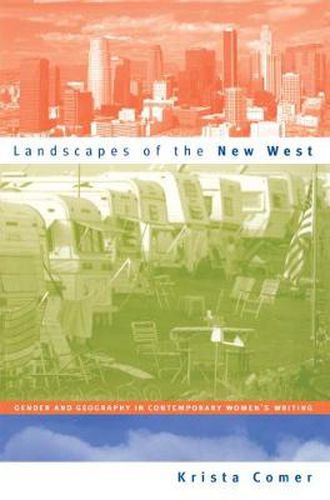Readings Newsletter
Become a Readings Member to make your shopping experience even easier.
Sign in or sign up for free!
You’re not far away from qualifying for FREE standard shipping within Australia
You’ve qualified for FREE standard shipping within Australia
The cart is loading…






In the early 1970s, empowered by the civil rights and women’s movements, a new group of women writers began speaking to the American public. Their topic, broadly defined, was the postmodern American West. By the mid-1980s, their combined works made for a bona fide literary groundswell in both critical and commercial terms. However, as Krista Comer notes, despite the attentions of publishers, the media, and millions of readers, literary scholars have rarely addressed this movement or its writers.
Too many critics, Comer argues, still enamored of western images that are both masculine and antimodern, have been slow to reckon with the emergence of a new, far more feminine, postmodern, multiracial, and urban west. Here, she calls for a redesign of the field of western cultural studies, one that engages issues of gender and race and is more self-conscious about space itself–especially that cherished symbol of western authenticity, open landscape. Surveying works by Joan Didion, Wanda Coleman, Maxine Hong Kingston, Leslie Marmon Silko, Barbara Kingsolver, Pam Houston, Louise Erdrich, Sandra Cisneros, and Mary Clearman Blew, Comer shows how these and other contemporary women writers have mapped new geographical imaginations upon the cultural and social spaces of today’s American West.
$9.00 standard shipping within Australia
FREE standard shipping within Australia for orders over $100.00
Express & International shipping calculated at checkout
In the early 1970s, empowered by the civil rights and women’s movements, a new group of women writers began speaking to the American public. Their topic, broadly defined, was the postmodern American West. By the mid-1980s, their combined works made for a bona fide literary groundswell in both critical and commercial terms. However, as Krista Comer notes, despite the attentions of publishers, the media, and millions of readers, literary scholars have rarely addressed this movement or its writers.
Too many critics, Comer argues, still enamored of western images that are both masculine and antimodern, have been slow to reckon with the emergence of a new, far more feminine, postmodern, multiracial, and urban west. Here, she calls for a redesign of the field of western cultural studies, one that engages issues of gender and race and is more self-conscious about space itself–especially that cherished symbol of western authenticity, open landscape. Surveying works by Joan Didion, Wanda Coleman, Maxine Hong Kingston, Leslie Marmon Silko, Barbara Kingsolver, Pam Houston, Louise Erdrich, Sandra Cisneros, and Mary Clearman Blew, Comer shows how these and other contemporary women writers have mapped new geographical imaginations upon the cultural and social spaces of today’s American West.